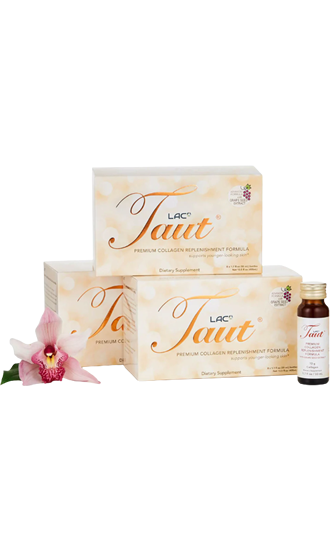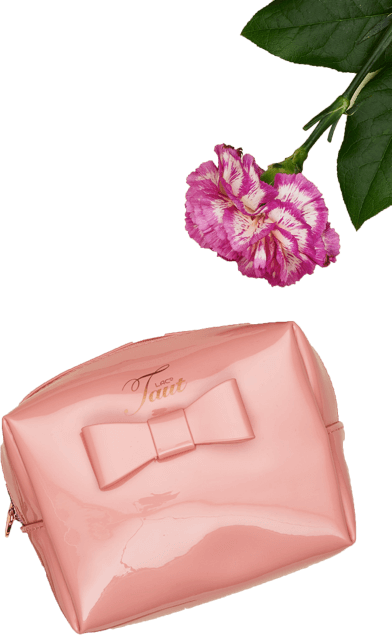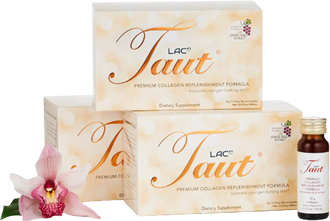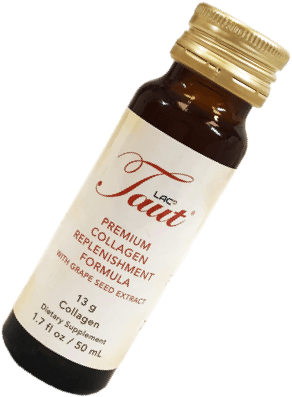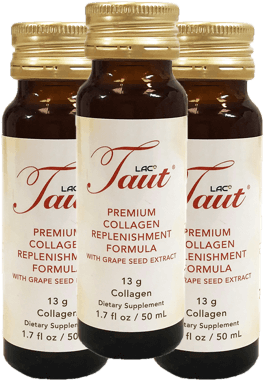Skin Inflammation: What Is Inflamed Skin? (Causes of & Treatment)
Dr. Aron explains what inflammation is and how it impacts your skin and body.
Have you noticed that you suddenly look older? Your hair is thinning and falling out, or you're suddenly experiencing drier, older skin? Inflammation may be to blame.
I grew up just outside of San Francisco. We lived in a nice cul-de-sac of newly constructed homes. I remember being in 3rd grade moving away from our smaller, older home in the Sunset district known for its side-by-side houses and fog. To me, the other families around us seemed to be normal and happy—young families creating lives together.
Two girls who went to the same elementary school as my brothers and I lived a few houses away with their parents. From the outside, their lives seemed perfectly happy. They went to school just like us. Their parents would wave to us as we drove by and would stop by if we were outside and talk with my parents. Then it all changed. We would hear arguing once in a while. Then the arguing became more frequent and more intense. Eventually, we stopped seeing the father doing normal household chores like taking out the garbage or washing the cars. Word spread that the parents had separated and gotten divorced.
Overnight, their mother looked like she had aged 10 years. What was once jet black hair had gone gray. What was once a youthful glow in her skin became a shade of drab.
How did she age so quickly? How was this possible? This was one of my first memories of seeing inflammation caused by stress drain the youth out of someone’s appearance.
Inflammation is no laughing matter and has to be treated seriously. Not only can it be a source of premature aging, but also health issues like cancer and disease.
Body and skin inflammation plagues our society now more than ever as the prevalence of disease, processed foods, and environmental toxins increase, not to mention things like infections, allergens, and autoimmune diseases that can cause acute and chronic inflammation throughout the body. Even a simple rash can be a sign that inflammation needs to be treated.
Fortunately, dietary and lifestyle changes, natural remedies, medications, and some of the best skin care products can help treat and reduce the effects of inflammation. Let’s take a look at the process of body and skin inflammation and what forms of treatment are available to help us lead healthier, happier lives.
What is Inflammation?
Inflammation sounds like a scary word. When you hear the word, do you picture a fire wreaking havoc inside your body or a crackling campfire where you are cooking a meal for your friends and family? Inflammation can be either of these.
Body and skin inflammation is a part of the natural healing process. It’s a sign that your immune response is working to treat a threat or perceived threat from a foreign invader—think infections, toxic chemicals, cancer cells, physical trauma, or emotional stress. For example, if you’ve ever sprained an ankle, your immune response process probably meant you experienced symptoms like swelling, redness, pain, heat, and loss of function. Consider inflammation your body’s reaction to protect, heal, and prevent further damage.
When you catch a cold, having symptoms like a fever or excess body heat, sore throat, cough, runny nose, and even a rash can be signs of inflammation—it’s your natural immune response to a cold virus.
So, what is inflammation of the skin? Let’s take a closer look.
Inflammation of Skin
There are two main types of skin inflammation: Acute skin inflammation and chronic inflammation. Acute skin inflammation is an immune system response that can occur quickly as a reaction to a foreign intruder such as a bacterial infection, contact with poison ivy, or exposure to the sun. Symptoms of acute skin inflammation may range in severity, from mild to severe. Some skin inflammation symptoms can include hives, pain, heat, swelling, itching, redness, or rash. Skin inflammation symptoms can resolve in the short term with or without medications or other treatment. Learn more as we define elastin, an essential protein in the skin.
On the other hand, chronic skin inflammation may occur slowly over time and cause long-lasting inflammation throughout the body. Chronic inflammatory skin conditions don’t always present symptoms. For example, people with psoriasis and seborrheic dermatitis (both of which are inflammatory skin conditions caused by immune system abnormalities) may experience rashes, pain, itching, or redness when the immune system is triggered. An immune system response can be triggered by things like stress, the weather, an infection, or a sun burn.
Even skin blemishes like pimples are an example of acute, skin inflammation from a local irritation or internal irritation. Eczema, otherwise known as atopic dermatitis, is a form of chronic inflammation of the skin. This common skin condition can be caused by a food intolerance, digestive dysfunction like gut hyper-permeability (a.k.a. leaky gut), or an immune system reaction to certain allergens. Other forms of chronic inflammatory skin conditions include psoriasis, rosacea, seborrheic dermatitis, and contact dermatitis.
Both acute and chronic skin inflammation may cause you to develop symptoms such as:
- Redness of the skin in the affected area, like an inflamed skin rash
- Itching, stinging and burning skin
- Thickened skin
- Swelling in the affected area
- Bleeding, raw, or cracked skin
- Warmth or heat
- Bumps like pimples, hives, or blisters
- Post-inflammatory hyperpigmentation
But, if these are protective mechanisms, why is our immune system harming our body with chronic inflammation? Let’s take a deep dive into what causes skin inflammation and chronic inflammation throughout the body.
Causes of Body & Skin Inflammation
1. Stress
The first, and increasingly common cause of body and skin inflammation, is stress. Just as in my story at the beginning of this article, life events like divorces, energy-draining family members, or difficult financial situations are perceived threats.
It feels like our very survival is threatened. When your brain perceives a threat, it responds by activating your fight or flight response. Your adrenal glands start pumping out the stress hormones cortisol and adrenaline. Your heart rate goes up. Your blood sugar goes up. There is less blood flow to the periphery, particularly your skin and scalp. And, your immune system becomes compromised.
In the short term, these are normal responses. In the long term, these can cause collateral damage, specifically body and skin inflammation.
Have you ever noticed that when you are more stressed out and maybe not getting enough sleep, more of your hair falls out and your skin starts looking drab?
Stress is mobilizing your body’s precious resources to run from a threat, even if there is no actual predator chasing you. Chronic stress becomes chronic inflammation and your skin and hair will show it.
How to Treat Skin Inflammation Caused By Stress
We are all different individuals that face all kinds of challenges every day. Therefore, there is no one cookie-cutter treatment or solution that I can offer you. However, from a health perspective, there are many things you can do to help get your stress treated properly to avoid inflammation under the skin and prevent early signs of aging.
One of the proven methods is to stimulate your body to produce and develop happy hormones and neurochemicals naturally, that can effectively counteract the destructive stress hormones "cortisol".
1. Relax and Meditation
2. Love yourself therapy
3. Exercise
4. Get at least 8 hours of sleep
5. Better time management and take control
Lastly, engage in activities that can relax you and help you get your feel good hormones going. If you can, try to avoid or minimize the elements that cause you more stress!
2. Infections (Viral, Bacterial, & Fungal) & Skin Inflammation
Having an open scrape or wound is never fun, but when a cut leads to infections it can be even worse. Skin inflammation from a wound can be a sign that your skin is responding to viral, bacterial, or fungal infections. And, you don’t have to have broken skin to be prone to infections. In fact, infections can appear on perfectly healthy skin.
Certain types of infections can cause a skin rash, inflammation of the skin, redness, itching, heat, pain, and flakiness. Some of the most common types of infections are:
Seborrheic Dermatitis
Seborrheic dermatitis is a type of skin inflammation that can be caused by several factors, including an overgrowth of fungi or bacteria. Signs and symptoms of seborrheic dermatitis include redness on light skin and lightness on dark skin types, rashes, and flaky skin. These infections can appear anywhere on the body, but it’s most more likely to appear on the face around the nose and eyebrows in adults. 1
Impetigo
This inflammatory skin infection can be caused by bacteria like Streptococcus pyogenes and Staphylococcus aureus. The skin infection is contagious and commonly starts in broken skin, like a small cut, or eczema rash, but healthy skin can also be affected by impetigo. While children between the ages of 2 and 5 are most often affected by this skin infection, adults who have diabetes, a compromised immune system, a sun burn, or other skin conditions like dermatitis, eczema, and psoriasis can also be prone to infection. 2
Ringworm (Tinea)
Ringworm occurs when a fungal infection on the skin causes redness and flakiness in the shape of a circle. Generally, this inflammatory skin condition grows on places of the body that are dark and warm, like on the bottom of the feet or the groin area. 3
Infections & Skin Inflammation Treatment
If you experience signs or symptoms (such as redness, rashes, itching, swelling, or flaking) caused by any of the infections or inflammatory skin conditions listed above, it’s important to get your skin checked by a dermatologist as soon as possible. If skin infections are treated properly, you can avoid further damage to your health and dermis.
Reducing skin inflammation caused by an infection usually requires either oral anti-inflammatory medications, oral antibiotics, or topical skin medications. Once treated, any sign or symptom of the bacterial, viral, or fungal infection should be completely gone. If the infection is severe and persists after your treatment period is over, check in with your dermatologist.
Considering that one of the main culprits of reddened, dry, and flaky skin is a lack of moisture, adding hyaluronic acid pills, like Taut Hydrate, to your everyday routine can help improve your skin’s hydration from the inside. More effective than drinking straight water, this supplement is packed with 120mg of hyaluronic acid (a moisture-magnet) to reduce hyperpigmentation and increase moisture, suppleness, and smoothness from within and leave you with healthier, smoother, and calmer skin.
3. Allergies & Inflammation (Skin Rash & Other Allergic Reactions)
Whether it’s springtime or just part of our genetic makeup, some of us are just more prone to allergic reactions than others. In fact, babies who are born via C-section are more likely to suffer from allergies and certain skin conditions throughout their life. This is because they weren’t exposed to their mother’s immune system-supporting vaginal flora at birth.
While an allergic reaction may look like itchy eyes, a runny nose, or throat swelling, a reaction can also cause skin inflammation. Anything can trigger an allergic reaction and cause skin inflammation, rashes, and pain, from topical sun creams and medications to exposure to pollen and poison ivy. So, what is skin inflammation from an allergic reaction? There are a number of different types of allergic reactions that cause skin inflammation. Let’s take a brief look at a few of the different types of reactions and the best forms of treatment.
Contact Dermatitis (From Skin Care, Poison Ivy, Fragrances, & More)
If you’ve ever tried out a new skincare product with irritating ingredients or accidentally brushed against poison ivy on your hike, you may have experienced contact dermatitis. Contact dermatitis is an allergic reaction that can cause skin inflammation when your skin touches an irritant. Unlike infections, foreign allergens or irritants don’t need to enter broken skin in order to cause mild to severe skin inflammation. For example, when your skin comes in contact with poison ivy, it takes just a tiny bit of the plant’s oils to cause a rash.
An allergic reaction from your immune system can cause rashes, redness, itching, and bumps. The rash will usually occur at the site of contact, but with poison ivy and a few other allergens, the rash can spread to other parts of the skin and cause further irritation and inflammation.
Hives
Hives, also called urticaria, are one of the most common allergic reactions. They look like little bumps and can cause itching mild to severe itching and discomfort. This rash affects up to 20% of people at some point in their lifetime and can be brought on by certain foods, medications, materials like latex, certain types of infections, insect bites, and even some plants. 4
Treatment For Allergic Reactions
Whether you only find yourself with an occasionally stuffy nose or a constant battle against allergens, you’ll likely need the help of an allergist or dermatologist to find the right treatment for your allergic reaction. If you know the cause of your rash, a dermatologist can help you find the best oral medications or topical treatments to combat your skin inflammation. If you’re unsure of the cause, they can help you figure which allergen is to blame for your rash or other inflammatory reaction.
4. Healthy Fats vs. Unhealthy Fats (& How They Impact Our Immune System)
How important are healthy fats? Fatty acids are important components of the health of cell membranes of every cell of your body—including your skin cells. The cell membrane is where all the functions from communication to transporting molecules and creating healthy barriers. Additionally, fatty acids are necessary for brain development and function.
There are different types of fatty acids, however, the ones that are important when it comes to supporting the immune system and regulating body and skin inflammation are Omega 3 and Omega 6 fatty acids.
There is an important distinction between Omega 3 fatty acids and Omega 6 fatty acids. Throughout human evolution, the ratio of Omega-6 to Omega-3 fatty acids was 1:1. Today’s Standard American diet, often abbreviated as SAD, has an Omega-6/Omega-3 ratio of 20:1!
So, what is the problem with this?
Omega 3 fatty acids are anti-inflammatory. They can be found in foods like cold-pressed olive oil, grass-fed animal products, cold-water fish like sardines, and seeds.
Omega-6 fatty acids, on the other hand, are inflammatory stimulants (which means they cause body and skin inflammation). They increase one of the body’s inflammatory biochemical pathways called the arachidonic acid pathway. Omega-6 fatty acids are found in foods like corn products, cereals, most vegetable oils, processed wheat-grain bread, and corn-fed animal products.
Many of us are consuming up to 20 times more pro-inflammatory fats and fewer anti-inflammatory fats than our parents and grandparents did just a few decades ago.
If your cell membranes have a high concentration of primarily Omega-6 fatty acids, your skin is more easily damaged by the sun, more susceptible to infections, rashes, and diseases, and will age more quickly. You are more likely to develop skin disorders, inflammatory skin conditions like eczema, psoriasis, dermatitis, and dry skin patches, and severe health issues, including cancer. And, consuming omega-6 fatty acids regularly can cause acute skin inflammation conditions as well, such as pimples, redness, itching, and rashes.
The best way to avoid inflammatory fats is to limit foods that you eat out of packages and start paying attention to the types of oil you cook with at home. If you eat out often, you may be consuming a lot more Omega-6 fatty acids without even knowing it, since inflammatory oils are used more frequently in restaurants than anti-inflammatory oils.
Anti-Inflammatory Diet Recommendation For Skin Health
Eat more omega-3 fatty acids food and pay attention to the healthy ratio of omega-3 fatty acids vs omega-6 fatty acids. Start eating more fish, oil, and nuts that contain a high ratio of omega 3 and cut down on processed foods.
One way to start getting more of the benefits of fish in your diet is by taking a daily marine collagen supplement. Our Taut Premium Collagen Powder provides 1,500mg of marine hydrolyzed collagen sourced from wild red snapper fish, without the fishy taste. It also contains hyaluronic acid, which helps improve skin moisture content and strengthen the epidermis, and grape seed extract, a powerful antioxidant that helps reduce skin inflammation and enhance your immune system response. It’s perfect for the woman on the go who wants to improve their diet. Just dissolve one sachet into a glass of water or right onto your tongue!
5. Environmental Toxins & Free Radicals
There are more exposures to toxic environmental pollutants now more than ever.
We live in cities that expose us to air pollution, harmful UV rays, and plastics in everyday products. The plastic leaches toxic chemicals into the beauty products we apply to our skin and water we drink, pesticide residues on the foods we eat, and water that may not be 100% free of toxins.
Each one of these alone is not enough to do a lot of harm today. However, the total body burden of all these exposures puts stress on our detoxification systems and eventually can damage the health of our cells and DNA, known commonly as free radical damage.
DNA in our cells is the blueprint for new cells, like skin. If the blueprint is damaged, the machine that is built as a result will not turn out quite right. DNA damage is linked to cancer, rapid aging, and many other chronic or severe diseases.
The reality can be sobering, but there is a lot you can do to improve your health once you know that these are the major causes of rapid aging and disease. Prevention is better than a cure.
How to Lower Your Exposure to Toxins & Treat Free Radical Damage
What can you do to minimize exposure to environmental toxins and prevent free radical damage to your health?
1. Minimize plastic usage and instead switch to paper or glass. Watch out for water bottles that are made with plastic that contains harmful chemicals. Several studies have shown that plastic can create an inflammatory response and negatively impact hormonal health. 5, 6, 7
2. Avoid the sun and minimize damage to your skin health from harmful UV rays. The best way to protect your skin is with sunscreen and treatments of antioxidants.
3. Protect your lungs from air pollution
4. Take vitamins and health supplements that contain antioxidants and immune system-boosting ingredients. Certain supplements have been proven to help improve the immune response and speed up the healing process after inflammation has occurred.
The LAC Masquelier French Pine Bark daily oral supplement is a patented and clinically proven tablet that delivers powerful antioxidants and anti-bacterial, anti-viral, anti-inflammatory, and anti-allergic properties to support your body and skin. The formula contains 100mg of GMO-free Masquelier’s Original OPC and french pine bark extract to help our immune system protect our body from inflammation produced in response to emotional and physical stress, poor diet, exposure to too much sun, and environmental pollutants. This treatment can help neutralize free radicals (that’s right, those evil foreign intruders that can cause disease and cancer). It isn’t a topical treatment, but it can help enhance the skin and may provide other skin health benefits by supporting its natural collagen production.
How Taut Collagen Can Help Fight Body & Skin Inflammation
As we’ve discussed, chronic and acute skin inflammation can significantly impact our health, but what we haven’t discussed is how it can negatively affect our beauty. One study showed that chronic skin inflammation may cause the collagen within the dermis to degrade. And, a loss of collagen can make our skin look older, dull, and lifeless.
Not only does that mean you should visit your dermatologist to pick up some medications for that pesky rash, but you also should treat your skin to an extra boost of collagen.
Collagen supplements are a great treatment option for helping you stay and look younger, but not all collagen treatments are created equal—only a few can help reverse skin damage and turn back the clock.
Our Taut Liquid Collagen Drink is formulated with 13,000mg of marine collagen sourced from wild red snapper from the Indian Ocean. The collagen molecules are hydrolyzed through a special process, which means they are broken down into smaller fragments, providing your body and skin with maximum, high potency peptides.
While this supplement is not intended to be used as a treatment for disease, cancer, or other severe condition, it can be used to slow down signs of aging, improve sagging skin, reduce the appearance of fine lines and wrinkles, and minimize skin inflammation caused by conditions like eczema and psoriasis.
To help you improve your skin in the long term, we’ve put together our Intense Transformation Program which contains 3 boxes of our collagen drink. Finally, you can have an intensive and effective anti-aging solution for your skin and body.
As you may have guessed, there are no special treatments or medications that can help you stay young forever, but you can minimize the sources of body and skin inflammation and supplement with collagen for a healthier and age-defying version of yourself. Start minimizing the source of skin inflammation today. Prevention is the key to youthful and healthy skin and body!
If you have any questions about our Intense Transformation Program or any of our other skin treatments, feel free to reach out to our team of beauty experts. We would love to hear from you!
References
- Seborrheic Dermatitis: Causes, Symptoms, Risk Factors, Diagnosis, and Treatments
- Impetigo: Symptoms, Causes, Pictures, and Treatment
- Ringworm and Fungal Nail Infections Basics
- Hives (Urticaria) | Causes, Symptoms & Treatment
- Plastics and inflammation: Journal
- Potential toxicity of polystyrene microplastic particles
- Estrogenic Chemicals in Plastic Products: Health Risks and Solutions
- Over-Modified Collagen in Inflamed Skin Increases MMP-2 and Matrix-Degrading Enzymes



